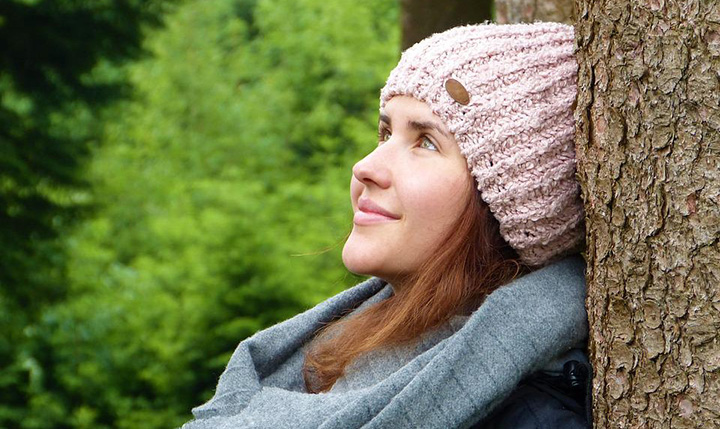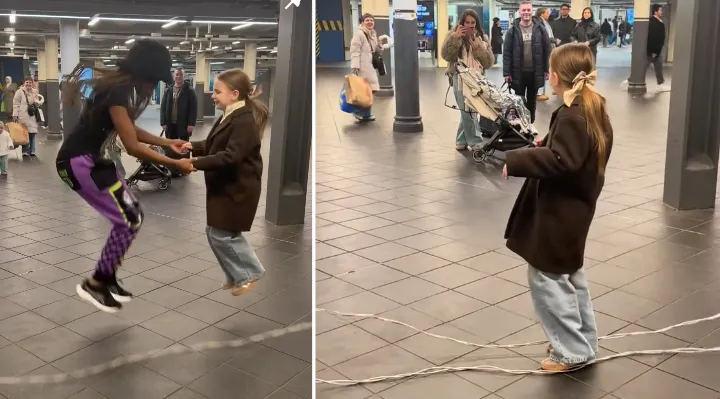A 60-Minute Walk In Nature Decreases Activity In Brain Regions Involved In Stress Processing
September 8, 2022
Researchers in Germany have found that a one-hour walk in nature reduces stress-related brain activity.

The amygdala is the brain region involved in stress processing. It has been shown to be less activated in people who live in rural areas, compared to those who live in cities, hinting at the potential benefits of nature.
However, no study so far has examined the causal effects of natural and urban environments on stress-related brain mechanisms.
"But so far the hen-and-egg problem could not be disentangled, namely whether nature actually caused the effects in the brain or whether the particular individuals chose to live in rural or urban regions," says Sonja Sudimac, predoctoral fellow in the Lise Meitner Group for Environmental Neuroscience (LMGEN) and lead author of the study.
To address this question, researchers from LMGEN examined brain activity in regions involved in stress processing in 63 healthy volunteers before and after a one-hour walk in Berlin's Grunewald Forest and a busy city street using functional magnetic resonance imaging.
The results of the study revealed that activity in the amygdala decreased after the walk in nature, suggesting that nature elicits beneficial effects on brain regions related to stress.
"The results support the previously assumed positive relationship between nature and brain health, but this is the first study to prove the causal link. Interestingly, the brain activity after the urban walk in these regions remained stable and did not show increases, which argues against a commonly held view that urban exposure causes additional stress," explains Simone Kühn, head of the Lise Meitner Group for Environmental Neuroscience.
The authors show that nature has a positive impact on brain regions involved in stress processing and that it can already be observed after a one-hour walk.
This new study again confirms the importance for urban design policies to create more accessible green areas in cities in order to enhance citizens’ mental health and well-being.
 Dogs Are Forced To Wear The Things They Steal — And It’s Hilarious
Dogs Are Forced To Wear The Things They Steal — And It’s Hilarious
 An Old Man Kept Visiting A Bookstore Every Saturday—The Reason Has People In Tears
An Old Man Kept Visiting A Bookstore Every Saturday—The Reason Has People In Tears
 He Says His Sister's Dog Hates Him — And The Pictures Don't Lie
He Says His Sister's Dog Hates Him — And The Pictures Don't Lie
 Someone Put A Pinecone In Their Shower… And People Are Fascinated By What Happened
Someone Put A Pinecone In Their Shower… And People Are Fascinated By What Happened
 He Showed Up Looking Like A Hairless Cat… Months Later, No One Can Believe The Transformation
He Showed Up Looking Like A Hairless Cat… Months Later, No One Can Believe The Transformation
 Bill Murray Says This Painting 'Saved His Life' — And It Still Inspires Visitors Today
Bill Murray Says This Painting 'Saved His Life' — And It Still Inspires Visitors Today
 This Apology During A Volleyball Game Is The Best Apology You Will See Today
This Apology During A Volleyball Game Is The Best Apology You Will See Today
 Strangers Teach A Young Girl To Jump Rope And Stop Her From Giving Up
Strangers Teach A Young Girl To Jump Rope And Stop Her From Giving Up
 Mom Filming Newborn Catches A Magical Surprise Visitor
Mom Filming Newborn Catches A Magical Surprise Visitor
 Grandma Has Dementia — See What Happens When Her Husband Sings At A Wedding
Grandma Has Dementia — See What Happens When Her Husband Sings At A Wedding
 Little Girl Asks Nursing Home Residents One Question —Then Starts Granting Their Wishes
Little Girl Asks Nursing Home Residents One Question —Then Starts Granting Their Wishes
